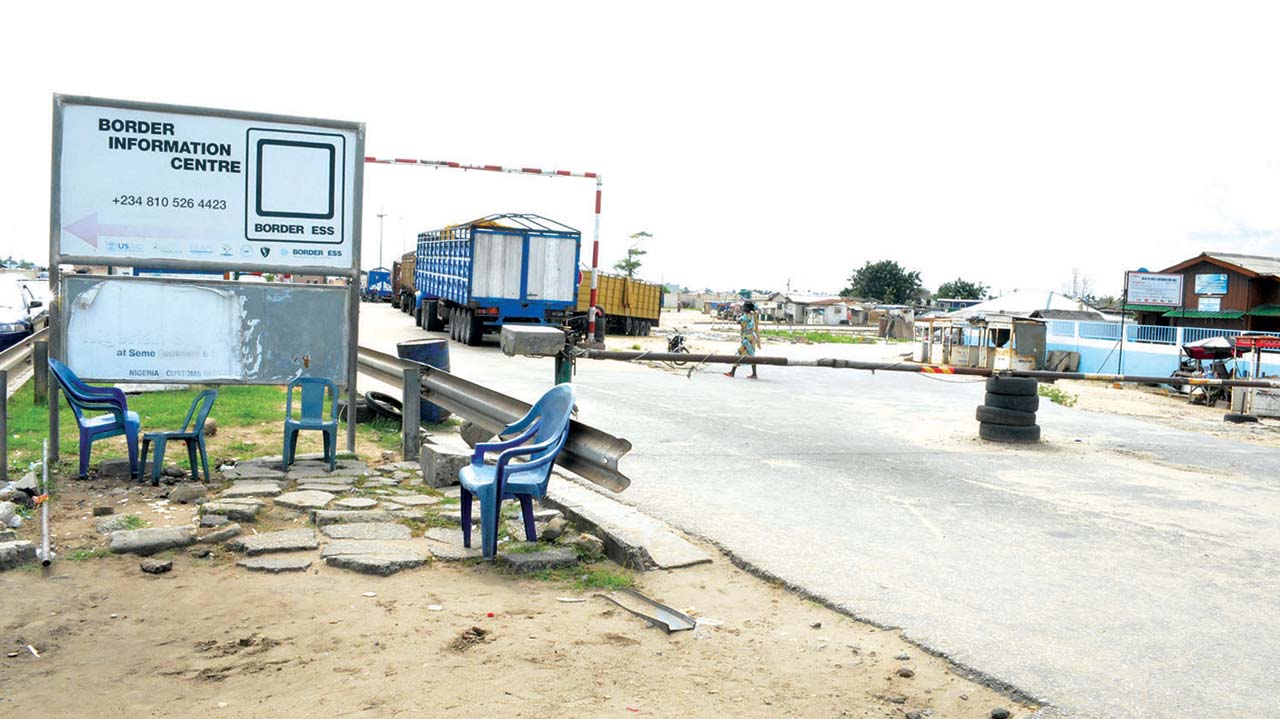Border closure pushed inflation to 11.24% – NBS


The Consumer Price Index released by the National Bureau of Statistics on Tuesday showed inflation index rose to 11.24 per cent in September, barely a month after the border closure.
The 11.24 per cent represents an increase of 0.22 per cent when compared to the 11.02 per cent recorded in August.
The prices of food items have been on a steady increase since August when the Federal Government closed Nigeria’s borders to the neighbouring countries.
The NBS report stated that increases were recorded in all the divisions that determined the index. It said the food index rose by 13.51 per cent in September compared to 13.17 per cent in August. It said the rise in the food index was caused by increases in prices of bread and cereals, oils and fats, meat, potatoes, yam and other tubers, fish and vegetables.
The NBS report read in part, “The consumer price index, which measures inflation increased by 11.24 per cent year-on-year in September 2019.
“This is 0.22 per cent points higher than the rate recorded in August 2019 (11.02) per cent.On month-on-month basis, the headline index increased by 1.04 per cent in September 2019; this is 0.05 per cent rate higher than the rate recorded in August 2019 (0.99) per cent.”
In the same vein, the Lagos Chamber of Commerce and Industry noted that the border closure could have recorded a drastic reduction in smuggling of rice, and petroleum products among others. It, however, lamented that genuine businessmen who transacted legal business in the sub-region were victims of the border closure.
The LCCI who spoke through its Director-General, Muda Yusuf, in a statement noted that the government might mean well, but there were many businesses in the informal sector that had been adversely affected.
It read in part, “The closure of Nigerian land borders for close to two months now has come with benefits and costs. There are upsides and downsides. Reports indicate a drastic reduction in smuggling of rice, poultry products and sugar. The smuggling of petroleum products outside the country to neighboring countries has also declined considerably. We note and appreciate these outcomes.
“But it is important to reckon with the costs, supply chain disruptions and losses that businesses and individuals have suffered as a result of the closure. “Corporates, large number of informal sector players and individuals doing legitimate businesses across the borders have become victims of the border closure.
“This poses a dilemma. The government means well, but there are many innocent casualties.
“As we celebrate the benefits, we should also count the costs. Jobs have been lost; prices have skyrocketed; legitimate exports to the sub-region have been halted; intermediate products for some manufacturers have been cut off and some multinationals companies have been de-linked from their sister companies in the sub-region.”
It added that the economies of border communities had been paralysed with consequences for unemployment and poverty, stating that over 90 per cent of Nigeria’s trade with the West African sub- region was by road.
“We export manufactured products as well as agricultural products – detergents, toothpastes, plastic products, steel products, kitchen utensils, grains, ginger, onions, among others.
“We also undertake many exports to the sub-region. These are sources of livelihood of Nigerians doing legitimate business. There are also thousands of transporters who make a living from these legitimate trading activities. These are costs that would run into hundreds of billions of naira. We must weigh the costs and benefits.”
Most often, the LCCI noted, the government failed to count the cost of government policy on the citizens and businesses.
However, President Muhammadu Buhari on Tuesday in Abuja reiterated that the border closure was an effort to support farming, fisheries and livestock sectors.
The President, represented by the Vice- Chairman of National Food Security Council and governor of Kebbi State, Abubakar Atiku Bagudu, said this during the 2nd National Unity Food Fair 2019 organised by the National Council of Women Societies in collaboration with Travel Marketing Partners (Nigeria) Limited.
The President said he was not aware of protests against the closure of the nation’s borders, adding that the decision had been embraced by farmers who were already happy over it, as demand for locally produced foods had increased.
Recent Posts
Ibas urges CAN to help restore peace in Rivers
The Sole Administrator of Rivers State, Vice Admiral Ibok-Ete Ekwe Ibas (Rtd), has appealed to…
Osun promises to rebuild burnt court
The Osun State Government has said the suspected arsonists behind the burning down of the…
Nigerian insurers eye expansion amid 61% growth in 2024
The Nigerian Insurance Association has revealed that the sector recorded approximately 61 per cent growth…
Prince William to represent King Charles III at pope’s funeral
British media said William’s attendance at the funeral will be seen as a major milestone…
South-South PDP appoints caretaker committees for Bayelsa, Edo
The South-South Zonal Working Committee of the Peoples Democratic Party has appointed caretaker committees to…
LG poll: Chairmanship aspirants to pay N5.5m as Lagos APC fixes nomination fees
The All Progressives Congress has fixed the nomination and administrative fees for aspirants vying for…